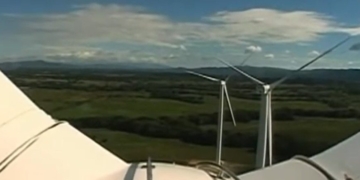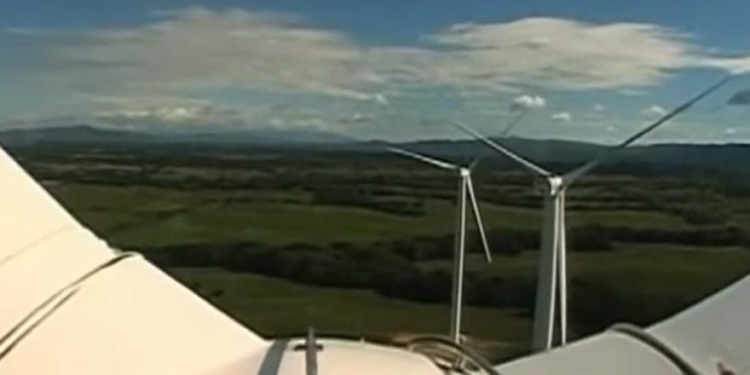New York is on track to miss the majority of its looming climate targets, according to a report from Democratic New York Gov. Kathy Hochul’s office.
Hochul issued an official review earlier this month admitting the state was not going to meet its goal of 70% renewable electricity by 2030 due to rising electricity costs and canceled “clean” energy projects. The goal of 70% renewable electricity is expected to be one of several ambitious New York State climate targets laid out in the 2019 Climate Leadership and Community Protection Act (CLCPA) that the state is unlikely to meet.
“We hope that this is kind of a wake-up call for the state,” Patrick McClellan, state policy director for the New York League of Conservation Voters, told non-profit news organization The City in reference to Hochul’s report.
Hochul said for the first time that the state probably won’t meet its landmark climate goals, which include cutting emissions 40 percent from 1990 levels and relying on 70 percent renewable electricity, all by 2030. https://t.co/DReOZGHid7
— leonie haimson (@leoniehaimson) July 18, 2024
As of 2023 — four years after the passage of the CLCPA and just seven years from the 2030 deadline — less than 30% of New York’s electricity came from renewable sources, according to New York State’s grid operator.
The slow transition is driven largely by high energy prices, which rose 29.4% between January 2021 and March 2024 compared with just 4.0% in the preceding four years under the Trump administration. As prices for traditional sources of energy, such as oil and gas, skyrocket, regulators are less willing to provide ratepayer-funded subsidies for early offshore wind and onshore renewables developers.
The hesitancy from regulators to boost ratepayer-funded subsidies caused two offshore wind contracts with New York State’s energy authority to be terminated in January, according to Politico. It also contributed to a failure by the state to finalize power purchase agreements with three developers that had received conditional awards in October 2023.
Renewable electricity delays are expected to affect a variety of other New York climate goals established in the CLCPA, including its goals of zero-emissions electricity by 2040 and net-zero emissions by 2050, according to The City.
The failure to reach the 70% renewable electricity by 2030 target is also expected to impact climate initiatives from New York City’s Climate Mobilization Act, most notably Local Law 97, which sought to place emissions caps on large buildings in the city. Building emissions are closely tied to electricity consumption, which will now be a far greater emitter since the city’s electricity will likely come from less renewable sources.
A variety of countries, states and municipalities have backtracked or missed climate targets recently.
In April, the Scottish government walked back its goal of cutting greenhouse gas emissions by 75% in six years — a policy they’d passed under a background of school climate strikes and pressure from Swedish climate activist Greta Thunberg’s climate campaign. Last year, Virginia produced 3.7 million more tons of carbon dioxide emissions from electricity production than when it joined the 12-state Regional Greenhouse Gas Initiative in 2021, which imposed a carbon cap on emissions for in-state power plants.
“Hopefully, people give us a little bit of squinting eye,” New York State Energy and Research Development president and CEO Doreen Harris told Politico when asked about hitting the 70% target by 2030.
“As New York State’s 57th Governor, I look forward to working together to rebuild our communities and continue to move our great state forward,” Hochul’s office said in response to a request for comment from the Daily Caller News Foundation.
(Featured image credit: Screen Capture/Voice of America)
All content created by the Daily Caller News Foundation, an independent and nonpartisan newswire service, is available without charge to any legitimate news publisher that can provide a large audience. All republished articles must include our logo, our reporter’s byline and their DCNF affiliation. For any questions about our guidelines or partnering with us, please contact [email protected].



























 Continue with Google
Continue with Google